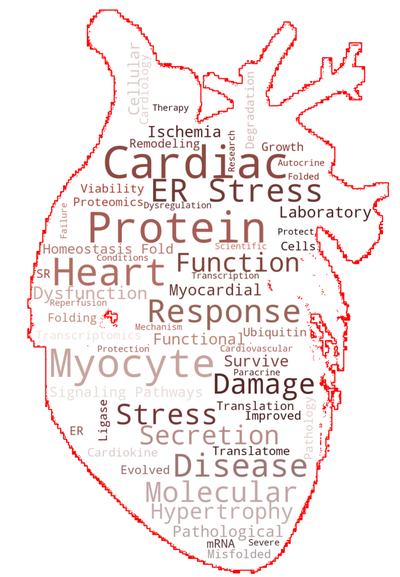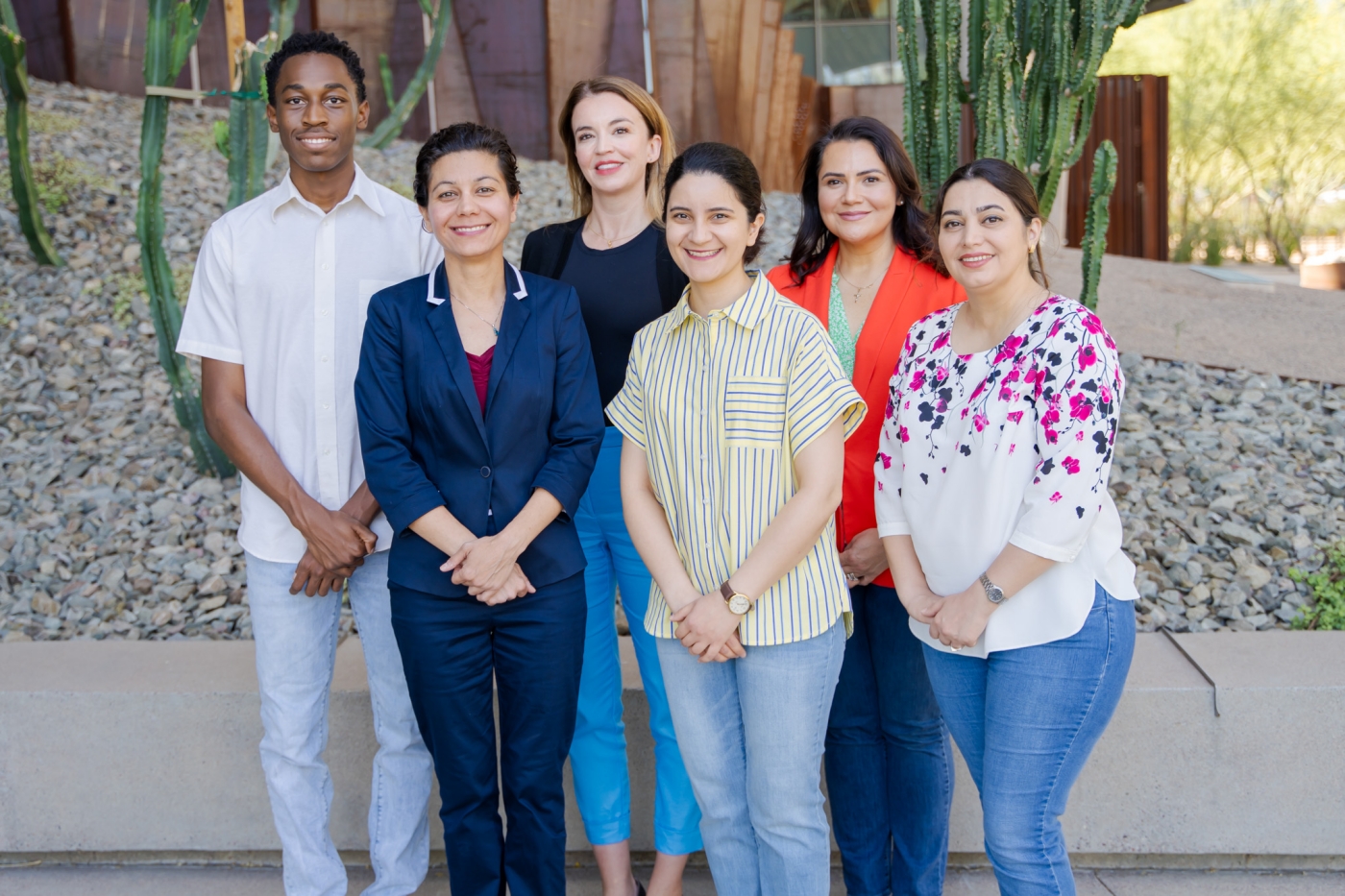The long-term goal of our research program is to better understand the age- and disease-linked deficits in protein homeostasis that contribute to disease-related cardiac dysfunction, and to use this understanding to identify cellular targets that may serve as viable new therapeutic candidates.
A major research direction of our lab is to study how heart disease affects gene expression at the post-transcriptional level, which is of major importance for maintaining protein homeostasis. We also study adaptive responses of the heart mediated by proteins secreted by the heart, in order to define potential therapeutic approaches that use the heart’s natural defenses.

The Doroudgar Lab is part of the Translational Cardiovascular Research Center (TCRC) in the Department of Internal Medicine at the The University of Arizona College of Medicine – Phoenix.

Join Our Team!
If you are interested in joining our team, please contact us.
News
We are excited to share that Doroudgar Lab was part of a special event celebrating women leaders in medicine and science. The event, hosted by the University of Arizona College of Medicine – Phoenix on November 20, 2024, recognized the achievements and contributions of women who are leading innovation in these fields.
It was an inspiring occasion that highlighted the importance of fostering diversity and leadership in STEM. Congratulations to Dr. Michael B. Fallon for receiving the Champion for Women in Medicine and Science Award.
For more information on the event, please visit the University of Arizona College of Medicine – Phoenix website. University of Arizona College of Medicine – Phoenix website.
Research
Shirin Doroudgar
Associate Professor
Department of Internal Medicine
Translational Cardiovascular Research Center (TCRC)
The University of Arizona College of Medicine – Phoenix
Principal Investigator
Shirin Doroudgar, PhD is Associate Professor of Internal Medicine at The University of Arizona College of Medicine – Phoenix and the Translational Cardiovascular Research Center (TCRC). Her research program utilizes integrative approaches from molecular and organellar to cellular and organismal levels to examine the dynamics of the protein homeostasis network in health and disease. The Doroudgar Lab’s current focus is on studies of cellular stress responses that underlie the dynamic remodeling of the cardiac myocyte proteome and secretome.
Our studies utilize integrative approaches from molecular and organellar to cellular and organismal levels to examine the dynamics of the protein homeostasis network in health and disease. Since protein homeostasis is a critical determinant of cell and organism health, our research focuses on identifying key molecular regulators of protein homeostasis. Our long-term goal is to better understand the age- and disease-linked changes in protein homeostasis that contribute to heart disease, and to use this understanding to identify proteins that could serve as viable candidates as new therapeutic targets. Currently, our research is primarily related to cardiac pathology, but our work has potential applications in other areas, including cancer biology, neurobiology, and regenerative medicine.
- Endoplasmic Reticulum
- Protein Secretion
- Protein Synthesis
- Proteostasis
- Cardiovascular Biology
Doctor of Philosophy, Biology, 2012
Department of Biology, University of California, San Diego, CA
Bachelor of Science, Molecular Biology, 2005
Department of Biology, University of California, San Diego, CA
Selected publications
Contact
- sdoroudgar [at] arizona [dot] edu
- 475 N 5th St, Phoenix, AZ 85004
- Please register in the Biomedical Sciences Partnership Building (BSPB)
















